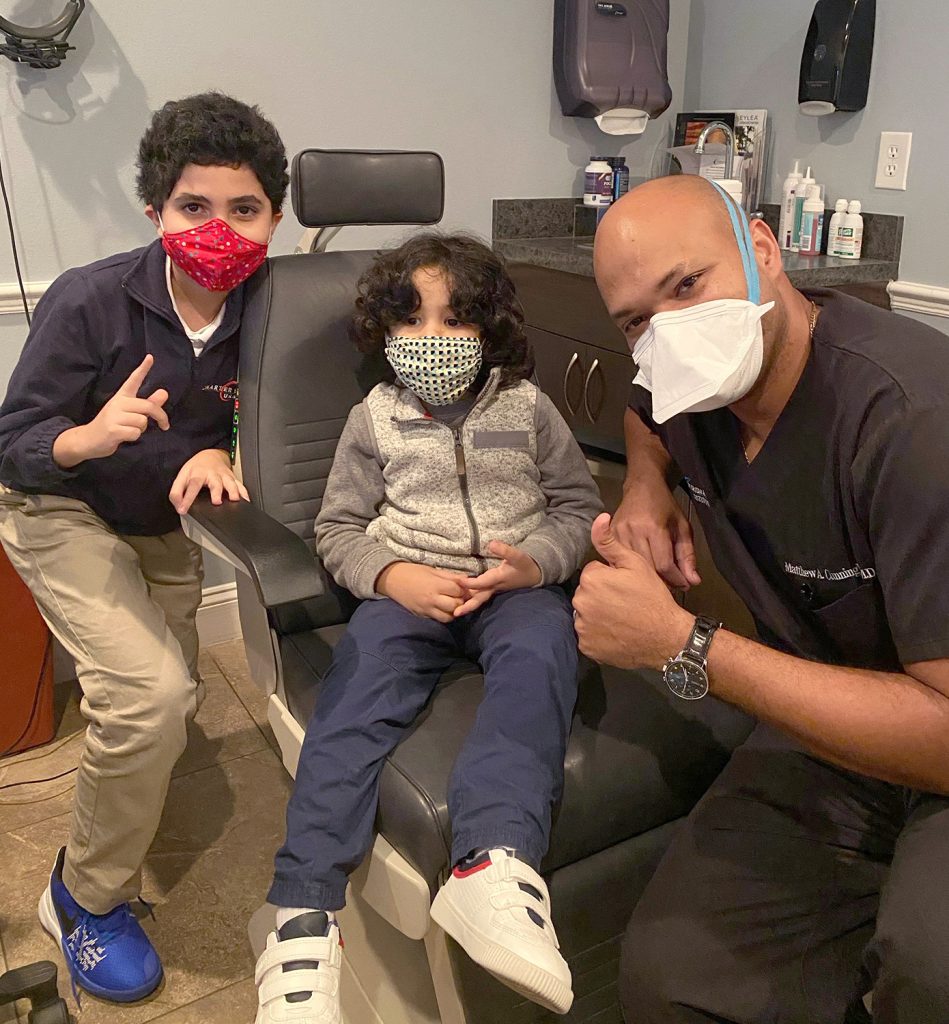Valiant Visionaries
Florida Retina Institute treats a wide range of eye care issues, including those affecting children, with a compassionate approach.
 Since 1979, Florida Retina Institute has been providing patients with top-notch eye care throughout Central Florida. The institute boasts cutting-edge, state-of-the-art technology as well as an exceptional staff. Best of all, the highly skilled team of caring and compassionate doctors is trained and equipped to handle even the most complex of eye care needs.
Since 1979, Florida Retina Institute has been providing patients with top-notch eye care throughout Central Florida. The institute boasts cutting-edge, state-of-the-art technology as well as an exceptional staff. Best of all, the highly skilled team of caring and compassionate doctors is trained and equipped to handle even the most complex of eye care needs.
Dr. Matthew Cunningham has been with the institute since 2013 and currently serves as the research director and principal investigator of numerous clinical trials. Dr. Cunningham was initially drawn to ophthalmology because, “it affords me the opportunity to help patients both in clinic and in the operating room.” As a retina specialist, Dr. Cunningham can actually alter a patient’s pathology. “Through a variety of procedures, we are able to take a condition such as diabetes or macular degeneration, the two leading causes of blindness in the United States, and prevent significant vision loss in the majority of patients. It is an incredibly rewarding field.”
During his fellowship in vitreoretinal surgery and diseases at the University of Iowa, Dr. Cunningham was mentored by Dr. Edwin Stone, one of the foremost thought leaders in inherited dystrophies. Dr. Cunningham’s experience has made him extremely comfortable in evaluating and managing a variety of inherited and sometimes rare retinal dystrophies.
Best Vitelliform Macular Dystrophy, also known as Best’s disease, is one of those conditions. Though this genetic disorder is rare, those who suffer from it have a 50% chance of passing it on to their offspring. Due to this alarming statistic, Dr. Cunningham often sees several members of the same family experiencing varying degrees of severity. Dr. Cunningham explains, “Best’s disease affects people differently. Some patients will maintain decent vision for the bulk of their lifetime while others will experience a progressive degradation of their vision. In some patients, injections may help slow down the rapid rate of vision loss.”
The usual onset of Best’s disease is around three to five years of age but it is typically not detected until much later in life. In fact, oftentimes, children with retinal disorders do not show any symptoms which presents a challenge in identifying and diagnosing their condition. Dr. Cunningham strongly recommends all children have an annual routine eye screening performed by their pediatrician as, “those check-ups are typically when ocular issues are first spotted. Sometimes, the issue is simply that the child will need eyeglasses but for those instances where there is a retinal abnormality, early intervention is key.”
One such condition is Coats disease, a vascular disorder, in which the patient develops leaking blood vessels. “The earlier we can diagnose and treat Coats disease, the sooner we can stop the leaking and thus spare as much of the patient’s vision as possible. If left untreated, there could be irreparable damage to the retina.”
There are numerous pediatric eye conditions that are best treated early in life including retinopathy of prematurity, which sometimes occurs in babies born prematurely and may lead to underdeveloped blood vessels in the retina. Uveitis is another condition involving inflammation of the eye and may be associated with systematic issues such as juvenile rheumatoid arthritis.
If a parent is aware of any significant visual or retinal issues that may run in their family, Dr. Cunningham recommends they have their child seen by an eye specialist as early as possible. Florida Retina Institute evaluates patients as young as a few months old. Parents who do not suspect any family history of genetically predisposed retinal issues but notice changes in their child, such as sensitivity to light, involuntary movement of the eyes, or the child subconsciously tilting his or her head to one side in order to see better, should also seek to have their child’s eyes checked earlier in life.
Dr. Cunningham says he is incredibly grateful to be able to help all patients with their various retinal issues. “I’m truly blessed to do what I do and to work with such a stellar team of doctors at Florida Retina Institute. We care deeply about our patients and are always striving to provide them with the best care possible.” With such skilled and dedicated doctors, it’s easy to “see” why so many patients place their trust in Florida Retina Institute.
To learn more about the services and treatment options offered at Florida Retina Institute visit FloridaRetinaInstitute.com.
Florida Retina Institute
Multiple locations in Central Florida including Orlando, Kissimmee, Lake Mary and Clermont
407-849-9621 | FloridaRetinaInstitute.com
This article originally appeared in Orlando Family Magazine’s March 2021 issue.









